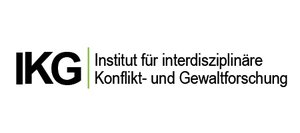Duration: 11/2020 - 10/2025
With support from RADIS, the research projects identify overarching questions, challenges, and arguments, that represent the topics of the funding program.
Joint events and regular dialogue are at the core of the transfer project. By this, RADIS creates methodological and empirical synergies: In interdisciplinary working groups (so-called clusters), the scholars discuss research designs and methods as well as core concepts in the field.
RADIS disseminates the results of the research to a wider audience: The projects‘ activities are pooled and presented in videos in podcasts. As dialogue between research and practice can‘t begin early enough, RADIS provides access to different formats and platforms to this end.
Individual researchers often don‘t have the resources to bring their findings to politicians, administration, and security agencies. Therefore, RADIS enables the dialogue with decision makers in these sectors. Furthermore, the projects receive support in translating their results into guidelines and manuals in collaboration with practitioners.
The Peace Research Institute Frankfurt (PRIF) in Frankfurt brings long-standing expertise on causes of and approaches to addressing radicalization and political violence, particularly with regard to Islamist extremism. It is the largest peace and conflict research institute in Germany and has been combining excellent fundamental research with independent policy advice since it was founded 50 years ago. As a Leibniz Institute, PRIF places an emphasis on knowledge transfer and has established a department dedicated to this purpose in 2019. PRIF‘s Berlin office serves as a hub for knowledge transfer into the federal policy landscape, thus providing established networks and formats RADIS can draw on. In the field of "radical Islam", PRIF successfully carried out two high-profile research and knowledge transfer projects funded by the Federal Ministry of Education and Research (BMBF), namely "Salafism in Germany" and "Society Extreme". Since 2019, PRIF has been consolidating and expanding its work in the fields of radicalization and political violence and terrorism by establishing Leibniz research groups and transferring them into permanent structures - thus creating a platform for the realization the RADIS network as well. Currently, PRIF also coordinates the research network PrEval, which deals with evaluation and quality management in the prevention of extremism.

The Institute for Interdisciplinary Research on Conflict and Violence (IKG) at Bielefeld University has been studying the foundations, manifestations, and consequences of radicalization from an interdisciplinary perspective for more than 20 years. Other relevant topics include prejudice and discrimination, migration, acculturation, and integration. The focus lies on empirical analyses of intra-societal conflicts as well as on the coordination of broad networks in research and practice. The IKG has carried out numerous large collaborative projects funded by the Federal Ministry of Education and Research (BMBF) that included elements of knowledge transfer. In RADIS, the IKG draws on its expertise in organizing and coordinating various types of events. In its capacity as publisher of the International Journal of Conflict and Violence, it offers an established publication format for the RADIS network.

The Berlin-based Violence Prevention Network (VPN) has been working with politically or religiously ideologized individuals and their families since 2001. In addition to working on the deradicalization of violent extremists, the VPN team has acquired nationwide expertise in the field of extremism prevention over the years. VPN's experts work in correctional facilities as well as in their own counseling centers, and offer training for disseminators and workshops for youth. Alongside its work in the field, VPN fosters the integration of research and practice through innovative research and development projects - and thus serves as a unique interface for RADIS for reaching out to the crucial field of prevention practice through various formats of knowledge transfer. Thereby, VPN allows research projects to gain new perspectives and approaches.